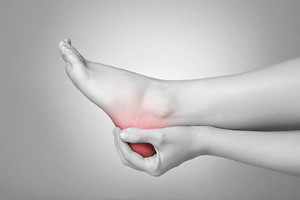6650 Frankford Ave
Philadelphia, PA 19135

Hammertoe surgery addresses the deformity where one or more toes bend downward, resembling a hammer. This procedure aims to relieve pain, improve function, and restore normal toe alignment. There are several types of hammertoe surgery, each tailored to the severity and specifics of the condition. Tendon transfer involves repositioning tendons to correct the toe's alignment. Joint resection, or arthroplasty, removes a portion of the joint to alleviate pressure and pain. Fusion, or arthrodesis, involves joining the bones in the affected joint to provide stability and straighten the toe permanently. Post-surgery, expect a period of recovery that includes swelling, pain management, and restricted movement. Wearing supportive footwear and following post-operative care instructions are essential for optimal healing and achieving the best results from the surgery. If you have a hammertoe that is causing you pain and discomfort, it is suggested that you consult a podiatrist who can determine if surgery is right for you.
Foot surgery is sometimes necessary to treat a foot ailment. To learn more, contact John M. Fanelly, DPM of Northeast Philadelphia. Our doctor will assist you with all of your foot and ankle needs.
When Is Surgery Necessary?
Foot and ankle surgery is generally reserved for cases in which less invasive, conservative procedures have failed to alleviate the problem. Some of the cases in which surgery may be necessary include:
What Types of Surgery Are There?
The type of surgery you receive will depend on the nature of the problem you have. Some of the possible surgeries include:
Benefits of Surgery
Although surgery is usually a last resort, it can provide more complete pain relief compared to non-surgical methods and may allow you to finally resume full activity.
Surgical techniques have also become increasingly sophisticated. Techniques like endoscopic surgery allow for smaller incisions and faster recovery times.
If you have any questions please feel free to contact our office located in Philadelphia, PA . We offer the newest diagnostic and treatment technologies for all your foot and ankle needs.

Heel pain can stem from various causes, each requiring a different approach for relief. One common cause of heel pain is plantar fasciitis, where inflammation of the tissue along the bottom of the foot leads to sharp heel pain. Another possibility is Achilles tendinitis, which affects the tendon that connects the calf muscle to the heel. Stress fractures or heel spurs can also contribute to discomfort. Additionally, poor footwear, excessive physical activity, and obesity can increase heel pain. Finding relief often involves a combination of strategies. Resting the foot and taking mild pain relievers can reduce inflammation. Stretching exercises for the Achilles tendon and plantar fascia can improve flexibility. Supportive footwear and orthotic inserts can provide additional comfort. If you have heel pain, it is suggested that you schedule an appointment with a podiatrist who can determine the cause and treat it accordingly.
Many people suffer from bouts of heel pain. For more information, contact John M. Fanelly, DPM of Northeast Philadelphia. Our doctor can provide the care you need to keep you pain-free and on your feet.
Causes of Heel Pain
Heel pain is often associated with plantar fasciitis. The plantar fascia is a band of tissues that extends along the bottom of the foot. A rip or tear in this ligament can cause inflammation of the tissue.
Achilles tendonitis is another cause of heel pain. Inflammation of the Achilles tendon will cause pain from fractures and muscle tearing. Lack of flexibility is also another symptom.
Heel spurs are another cause of pain. When the tissues of the plantar fascia undergo a great deal of stress, it can lead to ligament separation from the heel bone, causing heel spurs.
Why Might Heel Pain Occur?
Treatments
Heel pain should be treated as soon as possible for immediate results. Keeping your feet in a stress-free environment will help. If you suffer from Achilles tendonitis or plantar fasciitis, applying ice will reduce the swelling. Stretching before an exercise like running will help the muscles. Using all these tips will help make heel pain a condition of the past.
If you have any questions please contact our office located in Philadelphia, PA . We offer the newest diagnostic and treatment technologies for all your foot and ankle needs.